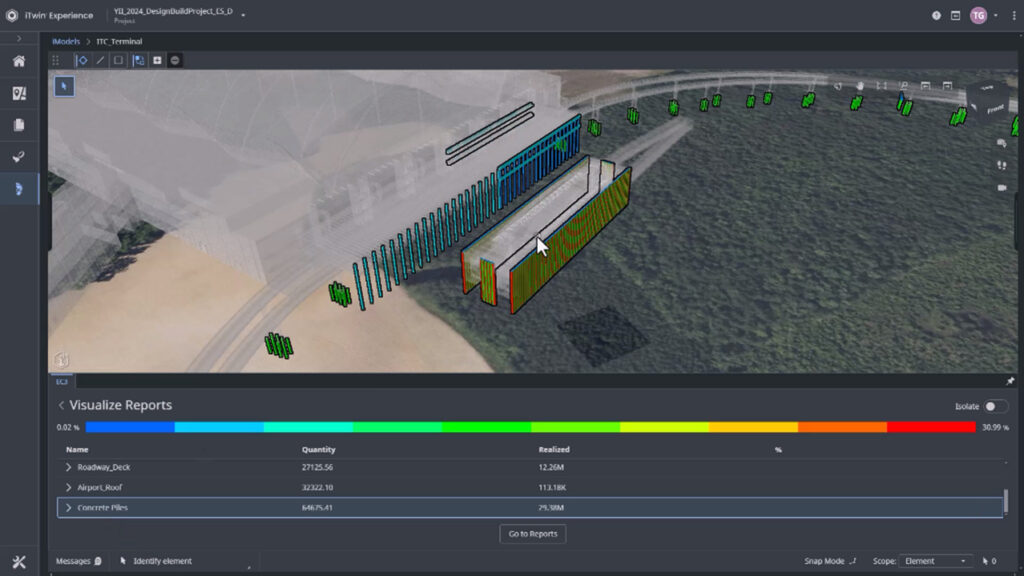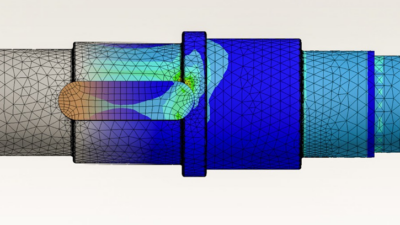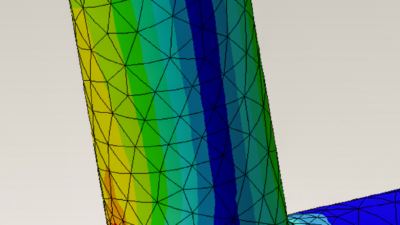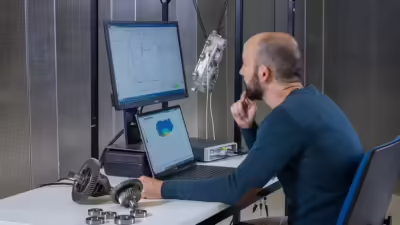Plus more from Siemens, Bentley and Autodesk in this simulation news roundup.
Altair’s quantum CFD breakthrough
Altair announced that it has made a major breakthrough in quantum computing for computational fluid dynamics (CFD) alongside researchers from the Technical University of Munich. The team developed a generic quantum CFD algorithm for 3D CFD, which Altair says has the potential to be “a game changer for next-generation CFD and simulation-based design” in the company’s press release.
The release elaborates: “Making classical CFD compatible with quantum mechanics allows users to leverage quantum computing’s superior processing power for simulations that are exponentially faster and potentially more accurate than classical computations.”

The researchers published their findings in a paper for Computer Physics Communications titled Quantum Algorithm for the Lattice-Boltzmann Method Advection-Diffusion Equation. It was developed under an Altair research grant and co-authored by Altair vice president of CFD solutions Christian Janssen and former Altair chief technology officer Uwe Schramm.
“Altair is committed to pushing the boundaries of simulation technology,” said Janssen in the release. “Our GPU-powered CFD tools have set the standard for efficiency and accuracy. Now, we’re exploring the revolutionary potential of quantum computing to tackle even more complex simulations, opening up new possibilities for innovation in product design and engineering.”
Siemens Xcelerator for EV engineering
Siemens has announced EV-focused adopters of its Xcelerator portfolio of engineering software. Pune, India-based Sedemac’s research and development, engineering and manufacturing teams will use Siemens software to develop motor control and engine control units for EVs, e-bikes and other electric equipment. In the U.S., Ohio-based Workhorse Group has standardized on Siemens Xcelerator as a Service to develop electric trucks for last-mile delivery.
“Standardizing on NX and Teamcenter X has allowed us to integrate our design, engineering, and supply chain functions efficiently,” said Jeff Mowry, chief information officer at Workhorse Group, in the Siemens press release. “Previously, our multi-CAD environment was costly and required extra resources. With Siemens, we’ve eliminated these inefficiencies and can focus on building complex electric trucks more effectively.”
Bentley adds carbon analysis to iTwin Experience
Bentley Systems announced that new carbon analysis tools in iTwin Experience are now generally available. The tools will allow infrastructure engineers to assess embodied carbon in their designs, making it easier to develop more sustainable designs, according to Bentley. The tools are now available at no additional cost to iTwin Experience users, though users will require a license to a carbon assessment calculator such as EC3 or OneClickLCA.

“Using Bentley’s new Carbon Analysis capabilities helps transform the tedious task of carbon reporting into a smooth, automated process—providing infrastructure professionals with greater visibility into carbon impacts and helping them design sustainable infrastructure faster and more easily,” said Chris Bradshaw, chief sustainability officer at Bentley Systems, in the company’s press release.
Autodesk releases Manufacturing Data Model API v2
Autodesk updated its Manufacturing Data Model application programming interface (API) to version 2, now in general availability. Part of Autodesk Platform Services, the new API allows Fusion users both read and write access to Fusion design data down to the component level, enabling bidirectional integrations with third party tools. Though the current version of the API is focused on design data, Autodesk suggests that other types of product data, such as simulation, may be accessible in future versions.



